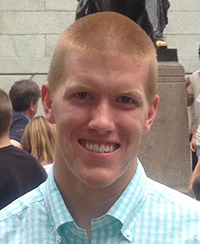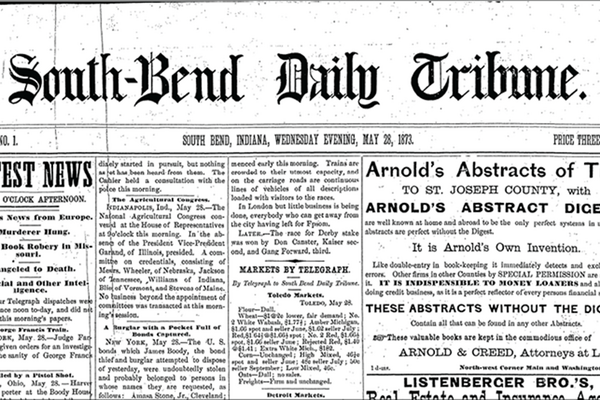 Tyler Barron
Tyler Barron
Before he heads to law school, Notre Dame graduate Tyler Barron ’15 will have a front-row seat for the lawmaking process.
Barron, a sociology and American studies major, has been selected for the Udall Foundation’s Native American Congressional Internship Program in Washington, D.C. He will work for 10 weeks this summer with U.S. Rep. Raul Grijalva, D-Arizona.
“The Udall internship is deeply committed to helping those in the most need,” he said. “And with my educational experiences at Notre Dame, particularly in American studies, I can more deeply understand those people and provide better insight on how to best help them.”
The program allows 12 students to gain practical and professional experience with the federal legislative process while learning about relationships between Native American tribes and the federal government. The foundation, a federal agency focused on strengthening Native nations and protecting natural resources, selected the group of interns based on academic achievement and a demonstrated commitment to careers in tribal public policy.
This year’s Udall interns come from 11 Native tribes and 10 universities. Barron, a member of the Bay Mills Indian Community in Michigan, hopes to begin pursuing a law degree in fall 2016.
“This program is an ideal transition that provides me with firsthand experience of exactly what I will be studying and, ideally, contributing to professionally,” he said.
Barron, a Gates Millennium Scholar, said his Notre Dame liberal arts curriculum allowed him to study America, race, inequality, and history in a way that showed him how the federal government can best help citizens in need.
That perspective will carry forward, he said, throughout his internship and his career.
“With this program and a law degree, I hope to be able to not only help Native people around this country but, more importantly, help foster greater forms of equality in every American institution through productive legislation,” he said.


